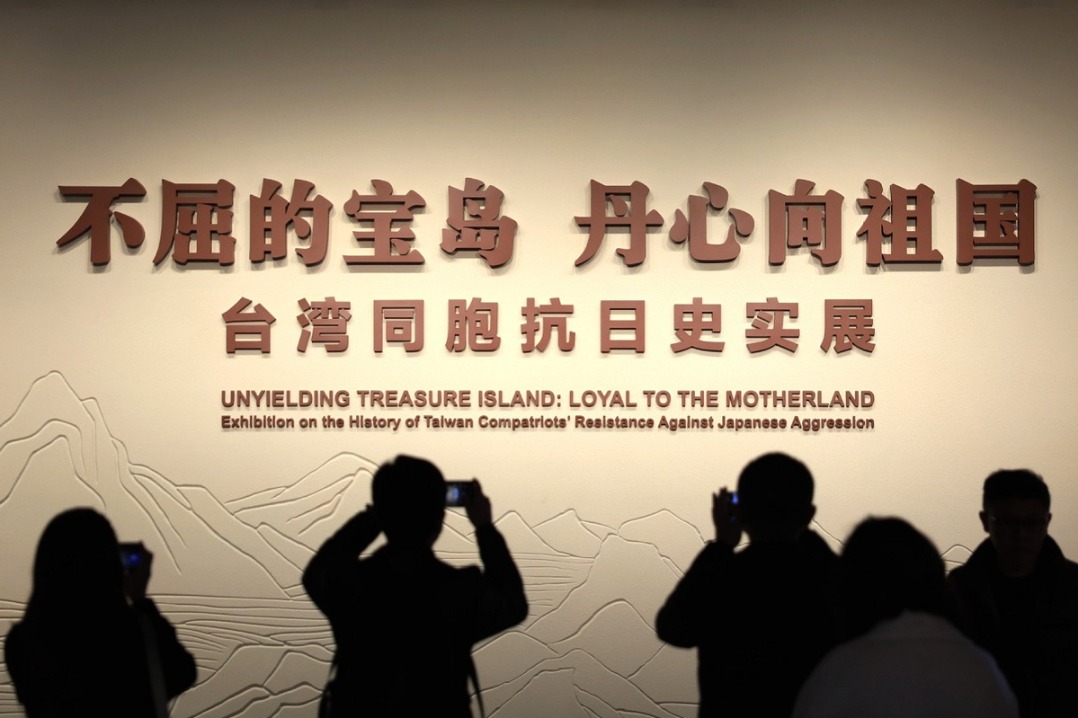Foreigners back Xizang's boarding school system

Foreign experts on Monday rejected comparisons between boarding schools in the Xizang autonomous region and colonial-era residential schools in Western countries, stressing that the schools in Xizang ensure children in remote areas gain access to education.
In recent years, some Western media outlets have raised concerns about the use of boarding schools in Xizang, often comparing them to residential schools in countries such as Canada and the United States, where historical tragedies involving Indigenous children occurred.
Michael Crook, chairman of the International Committee for the Promotion of Chinese Industrial Cooperatives, argued that the purposes of the two systems are fundamentally different. He stated that the colonial-era residential schools aimed to "abduct the local children … and separate them from their own culture and language".
The remarks were made at the International Academic Seminar on Boarding Education and Plateau Development held by the University of Electronic Science and Technology of China in Chengdu, Sichuan province.
"That's not the case of boarding schools in Xizang," Crook said, adding that the criticism often reflects the accusers' own history. He denounced the attacks using an old Chinese saying: "judge a noble person by the standards of a petty person."
"Some of these countries have looked back on their shameful history of cultural genocide of the native peoples and so on, and I guess they think, well surely they (the Chinese government) must be doing the same," Crook said.
Kwok Siu Ming, associate director of the School of Public Policy at the University of Calgary, Canada, echoed this view, emphasizing that the goal of the colonial system was the "elimination of the culture". In contrast, he said, China's boarding schools are there to "enhance the living standard of the children in Xizang and keep their culture alive at the same time".
He noted that boarding schools are a way of optimizing resources and enhancing education levels in China, promoting respect for local culture.
Mario Cavolo, a nonresident senior fellow at the Center for China and Globalization, dismissed accusations that the schools are used to destroy Tibetan culture as "nonsense".
"Tibetan culture is everywhere, and it has been passed on in the schools, including boarding schools," Cavolo said.
According to Crook, for students in Xizang, attending boarding school is a personal choice. He recounted personally visiting a boarding school in the region where he observed students making notes in Tibetan on Tibetan textbooks.
He said the students he spoke to appreciate the high-quality educational resources, which have made them more ambitious about their future. Crook suggested that the best way to dispel doubts is to "let people (who have doubts) go to a boarding school in Xizang and talk to the students like I did".
He added that since the founding of the People's Republic of China, the Constitution has declared it a multiethnic state where "people from all ethnic groups have a right to education in their own languages", a right he believes is well-protected in boarding schools.
Dralo, a researcher and deputy director-general of the China Tibetology Center, explained that the schools play a vital role in providing education to children from remote farming and pastoral areas. Accessing schools in these regions is challenging due to the high altitude, harsh natural environments, extremely low population density and long distances.
Dralo suggested that this situation is likely to change as the region develops.
"Xizang is rapidly advancing urbanization," he said. "As urbanization reaches a certain level. The number of boarding schools may drop because generally, there is no need to adopt a boarding system in urban areas."
- Foreigners back Xizang's boarding school system
- Compatriots from both sides of Taiwan Strait oppose external interference
- Ex-deputy GM of key state-owned enterprise expelled from CPC for corruption
- Legislators push stronger protections for disabled
- Former senior legislator dismissed from public office for duty-related crimes
- Former natl defense official expelled from Party for serious violations





































